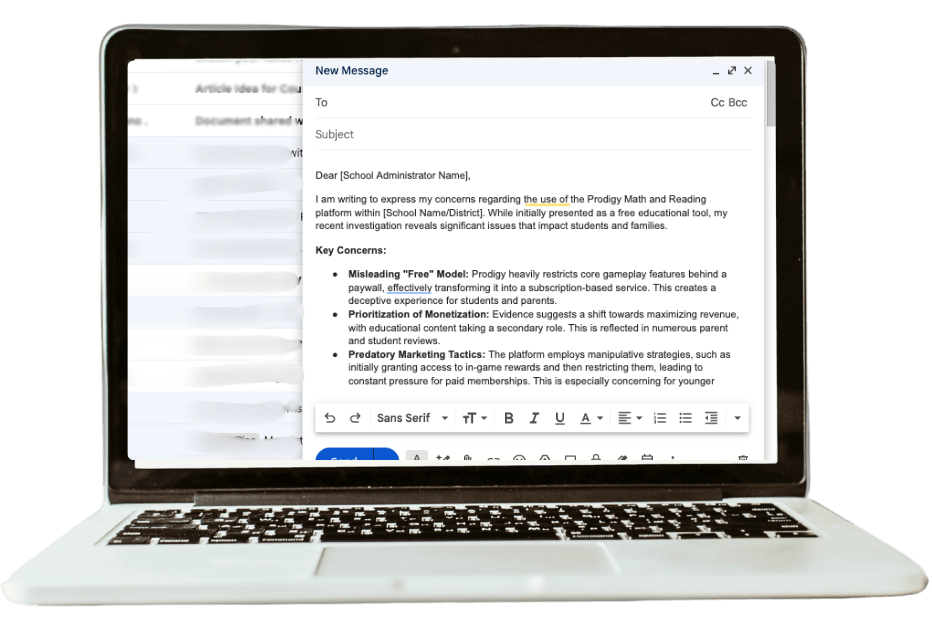Is your 12-yr-Old ready for a Phone? The Vital Milestones to Know
Middle school is a wildly common time for parents to decide to buy their child their first phone. A study by Common Sense Media revealed that in 2021, the largest increase occurred between ages eleven and twelve (p 30).
At 11, about 37% of kids owned their own smartphone (p. 30).
By age 12, that number rose to 71% (p 30).
This falls perfectly in line with their developmental stage. Developmentally, twelve is considered to be the inaugural year of adolescence. With that comes an increased desire and need for independence. Allowing children more space and time to spend with peers is a vital way to support their development.
For many parents, a phone acts as a safety tool to more readily allow their kids to exercise the independence they crave. There is a lot of good buried in that reasoning, but developmentally is your 12-yr-Old Ready for a Phone?
As parents debate the pros and cons, taking a closer look at the developmental tasks and needs of an average 12-yr-old can give helpful insight into why a phone can also be overwhelming for a budding teenager.
3 Key Traits of a Developing 12-Yr-Old
1. Sensitive to Stimuli
A change in the way their nervous system receives information causes preteens to feel things more deeply and exhibit BIG REACTIONS.
2. An Inflated Sense of Self-importance
Tweens believe everyone is watching and judging them, making them overly SENSITIVE TO CRITICISM.
3. Identity Formation
Tweens begin to evaluate who they are and how they relate to others as they start to form their own identity, leaving them HIGHLY IMPRESSIONABLE.
Sensitive to Stimuli
During puberty, neurons become more responsive to excitatory neurotransmitters (Berk, 367). The result is that teenagers feel input from the world more intensely. They react more strongly to stressful events, and experience pleasure more profoundly (Berk, 367).
Consequently, there is a biological basis for the stereotype we perpetuate about teenage reactions. There is science behind the yelling, the door slamming, the hurtful words, and the big reactions. Twelve-year-olds are developmentally wired to have big reactions, and it is normal and appropriate for their developmental stage.
Unfettered access to the internet provides teens with a massive amount of input. Soaking in the unfiltered thoughts and opinions of others every time they swipe through social media leave them feeling overwhelmed and eruptive. High level adult news stories could also send their emotions into overdrive. Considering smartphone use in early adolescence means critically evaluating what information they will have access to and how to best align that with their capacities.
The “Imaginary Audience” and An Inflated Sense of Self-importance
With improved cognitive ability comes an increased ability to consider the perspectives of others. As a result, tweens begin to believe that they are the focus of everyone else’s attention, and consequently, that they maintain a heightened level of uniqueness and importance in the world (Berk, 384). So no, it is not just your tween!
In fact, it is developmentally appropriate for them to think that everyone is spending immense energy forming opinions about them, and this makes them incredibly sensitive to embarrassment or criticism. Science shows that this sense of an “imaginary audience” and self-importance are most powerful during early adolescence (Berk, 385).
Access to the internet and social media exposes pre-teens to a tremendous amount of public criticism that they are physiologically more vulnerable to, and developmentally not yet equipped to handle.
As we age, we are more capable of “brushing things off”. We gain perspective and maturity in our life experiences and brain development that allows us to process and cope with criticism in constructive ways. But we cannot hold our teens to that same expectations yet. Thinking more deeply about how much public opinion we expose them to as part of their smartphone experience can help better scale it to what is tolerable.
Identity Formation
In adolescence, the goal is to form an identity, away from one’s parents, by defining what you value and what you want to pursue (Berk, 400). This phase is best supported by allowing opportunities for social engagement, exploration, exposure, and independence.
There are a multitude of factors that influence the process of identity development, and it is one that continues throughout the lifespan as we age. But this complex and vital process starts at twelve.
Twelve is when we first begin to see ourselves, to examine how others see us, and to evaluate what it means to be who we are and who we want to become.
From a developmental perspective, twelve is the beginning of the rest of our lives. It is where we start to experiment with the personality and innate qualities we’ve been given and figure out how we want to use them to bring ourselves joy and influence the world around us.
When we consider the enormity of this phase, it’s important as parents to pause and ask ourselves … who do we want to have direct influence over our child?
In regards to media usage, someone put it this way, “You are not giving your children access to the internet. You are giving the internet access to your children.” (Unknown).
The content our children are exposed to WILL affect their view of themselves, their perceptions of how others view them, and therefore the identity they are forming.
We cannot control everything our kids are exposed to, but we can limit those exposures by thinking critically about what boundaries we set around their internet use while they are most vulnerable.
Where to go from here
If your child already has a phone, use this developmental knowledge to consider what limitations you need to put on it. Consider if anything additional would make it a better fit for their current stage. Be intentional and have conversations about what they are seeing and/or exposed to on their device. Watch for warning signs that they may feel overwhelmed by it, and think proactively about how you might address it.
Twelve is big. It is a year of adjustments for kids and parents. Technology can provide important levels of communication as families navigate the twists and turns of adolescent needs and behaviors. At the same time, when we look at the vulnerabilities and capacities of our early teens, we can better critically evaluate what technology to introduce when, and how to introduce it in ways that support their development without compromising it.
Developmental stages are key to understanding what our children are capable of. 12-yr-olds are not equipped to handle smartphones. Exact ages of readiness vary, but popular psychologist Jonathan Haidt in his book, “The Anxious Generation” recommends parents wait until at least highschool, to be given full access to a smartphone.
If you’re looking for ways to give your 12-yr-old more independence you might explore smartwatches or a no-frills phone. There are many options that allow for pre-approved contacts, GPS tracking, no internet access. These options give your child opportunities to gain trust with entry-level, developmentally appropriate responsibility.
For further information on your developing 12-yr-old and media usage, check out these CDC tips, or this article. If you enjoyed this article, be sure to check out these other articles on our blog.

Authored by: Courtney G. DiStefano, CCLS
Courtney G. DiStefano is a Certified Child Life Specialist, child development expert, and mom of three with nearly fifteen years of clinical experience serving children and families in hospitals and social-service settings.
References: Berk, L. E. (2007). Development through the lifespan (4th Ed). Allyn and Bacon.




